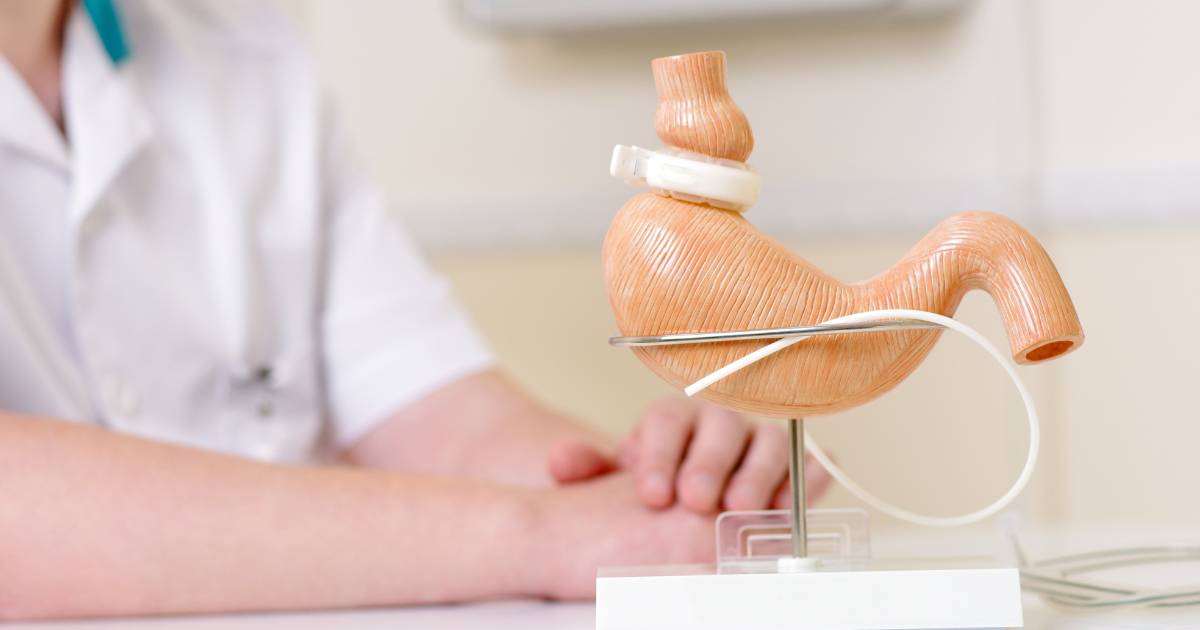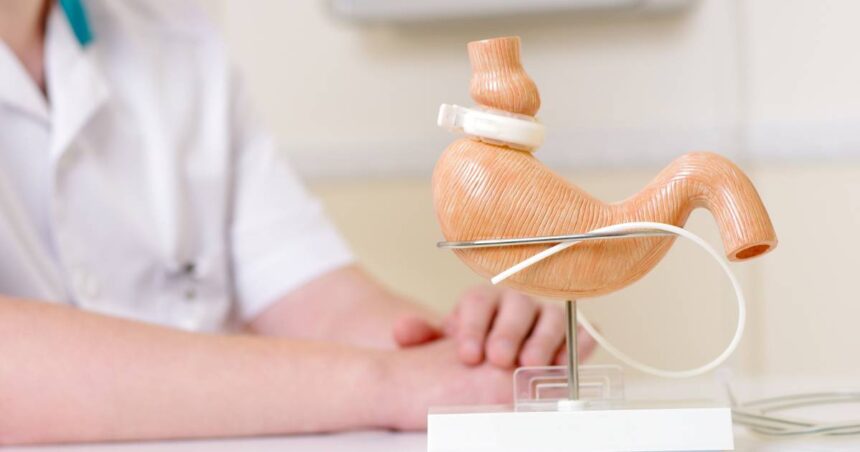The gastric bypass procedure is a type of surgery that is often recommended for people who need to lose significant weight for health reasons.
Doctors recommend gastric bypass surgery for diabetic patients to help prevent heart disease, reduce hypertension, weight loss, and reverse type 2 diabetes in some circumstances.
In this article, we will explore gastric bypass and other weight loss surgeries and how these procedures can benefit people living with diabetes.
What is gastric bypass surgery?
Gastric bypass is a common type of weight loss surgery, also known as bariatric surgery. The gastric bypass procedure involves reconstructing the stomach and small intestine so that food passes through the digestive system differently.
Surgery causes food to “bypass” the stomach and move it to the intestines instead.
There are several effects of this redirection in food and reconstruction of the digestive system.
First of all, most people find that after the gastric bypass procedure they feel completely faster, as the larger stomach is not used as the first stop for food. This means that a person cannot eat many foods after the procedure, and most people report feeling full for a long time after meals.
Secondly, foods eaten bypass some of the digestive system that absorbs nutrients, making it even more useful in the weight loss process as it absorbs fewer calories.
This also means that there are fewer micronutrients absorbed, so those undergoing gastric bypass surgery are generally prescribed daily vitamin regimens to compensate for things that are no longer absorbed by diet alone.
The most common type of gastric bypass surgery is the Roux-en-Y procedure (César Roux, named after the surgeon who invented it), which is the way in which the stomach and small intestine are connected to a new “Y” shape.
According to the University of California, Los Angeles School of Medicine, gastric bypass surgery has good short- and long-term weight loss results.
In the short term, most patients can be expected to lose 60% to 80% of their excess body weight. In the long term, most patients avoid at least half of their excess weight.
Gastric bypass surgery also generally helps to help people avoid complications related to overweight or obesity.
These steps are not for everyone. Gastric bypass is usually recommended by a doctor only if a person’s Body Mass Index (BMI) is above 40 or if there is a BMI above 35 at the same time as a certain serious weight-related diagnosis.
Can people with diabetes undergo gastric bypass surgery?
Yes, people with diabetes can undergo gastric bypass surgery if recommended by their doctor or other health care provider.
Generally speaking, gastric bypass surgery is recommended only for adults with type 2 diabetes if they have a BMI greater than 35, and if their weight cannot be controlled with diet, exercise, or medication alone.
Gastric bypass surgery may also be recommended even if only a person’s weight or BMI does not meet the typical medical standards. These include cases where a person’s blood glucose level (measured by HBA1C) is out of range and is difficult or impossible to control through medication, diet, or exercise.
Gastric bypass could also be a preferred medical intervention if a person has major complications from type 2 diabetes and if a medical professional evaluates it as a critical weight loss.
According to the American Academy of Pediatrics, some situations are also limited when conditions such as teenagers with clinical obesity over the age of 13 and type 2 diabetes may benefit from weight loss surgeries such as gastric bypass.
How does gastric bypass surgery affect diabetes?
The main purpose of gastric bypass surgery is to help people lose weight and avoid long-term complications of overweight or obesity.
Clinical research has long established that insulin resistance also increases as body fat and BMI increase.
Gastric bypass surgery helps most people lose weight quickly, so insulin resistance, a characteristic of type 2 diabetes, is generally improved through procedures.
Furthermore, nearly 60% of adults with type 2 diabetes who underwent gastric bypass surgery experienced long-term remission, according to a study published in the Journal of Clinical Endocrinology and Metabolism.
After gastric bypass and weight loss, fewer people need to take long-acting or mealtime insulin, and about half of those who previously suffered from type 2 diabetes achieve normal “non-diabetic” blood glucose as measured by A1C.
Full weight loss from the procedure can take 12-24 months, but the effects on blood sugar are much faster.
A significant proportion of people with type 2 diabetes experience normal blood glucose levels close to a few days after gastric bypass surgery, which is likely partially due to a calorie-restricted diet needed during the postoperative recovery period.
What are the risks of bariatric surgery for diabetes?
The gastric bypass itself is one of the safest surgeries and can help people lose weight, but all bariatric surgeries come with some risks.
Some of the potential complications of weight loss surgery include:
- Long-term nausea and vomiting
- Acid reflux (heartburn) and gastroesophageal reflux disease (GERD)
- Postoperative infection
- malnutrition
- Obstruction of the stomach or intestines
- Can’t eat certain foods
There are other changes that people with diabetes should know if they have gastric bypass surgery, especially if they have diabetes.
One complication you should know is an increased risk of hypoglycemia or hypoglycemia.
The stomach after the gastric bypass is functionally small, so people taking insulin should be careful around hypoglycemia. If you experience hypoglycemia after the procedure, some diabetics report that it is more difficult to consume enough carbohydrates/sugar to quickly return your blood sugar to normal levels.
Gastric bypass and other bariatric surgeries can cause nausea and vomiting, so it is important that insulin users recognize blood sugar levels and not overdosed when it is difficult to finish their diet or suppress food.
This is especially important immediately after the procedure. Temporarily, you’re used to the amount of food that comes with feeling full and how your body eats.
A side effect of gastric bypass surgery is a very small percentage of people who experience repeated severe hypoglycemia.
For most people whose doctors recommend gastric bypass, the risk of complications is relatively low compared to the risk of being significantly overweight over the long term.
Before undergoing gastric bypass surgery, it is important to consult your doctor and medical team about how to manage diabetes before and after the procedure. Also, there are certain changes to the medication, diet, or exercise needed to successfully complete the procedure and reduce the risk of complications.
What is the best weight loss surgery for diabetes?
There are many different types of weight loss surgeries. In the US and Europe, the three most common weight loss surgeries are gastric bypass, adjustable gastric banding (also known as “lap bands”), and sleeve gastrectomy surgery.
Each type of surgery has its advantages and drawbacks, and doctors may recommend it to each other for a variety of clinical reasons.
Clinical trials have found that gastric bypass is consistently safe, well tolerated and effective in helping people with type 2 diabetes lose excess weight and avoid complications.
For this reason, gastric bypass surgery is the most common bariatric surgery recommended for people with type 2 diabetes.
Recent studies also show that another, less common surgical procedure known as bile pancreatic detours, may be even more effective for some people with diabetes. This is because bile terminal detour procedures help people become more insulin sensitive than other weight loss surgeries.
However, gastric bypass surgery has few potential complications, has a long history and has an excellent safety profile. For this reason, most medical professionals recommend a gastric bypass for diabetics who need surgery to lose weight and improve diabetes control.
Your physician or healthcare provider can discuss all the surgical and non-surgical options available, and explain why they advise on a particular course of action.
FAQ
There are four types of gastric bypass surgeries. The gastric bypass, Roux-en-Y (Rygb, proximal), is the most common. In addition to Roux-en-y distal procedures, there is also a mini-gastric bypass and an endoscopic duodenum-jejunal bypass. These have been evaluated through clinical trials.
Almost 60% of adults with type 2 diabetes who underwent gastric bypass surgery experienced long-term remission of diabetes.
Metformin may be prescribed after gastric bypass, but studies have shown that its absorption and efficacy can change, so doctors may adjust the dosage.











